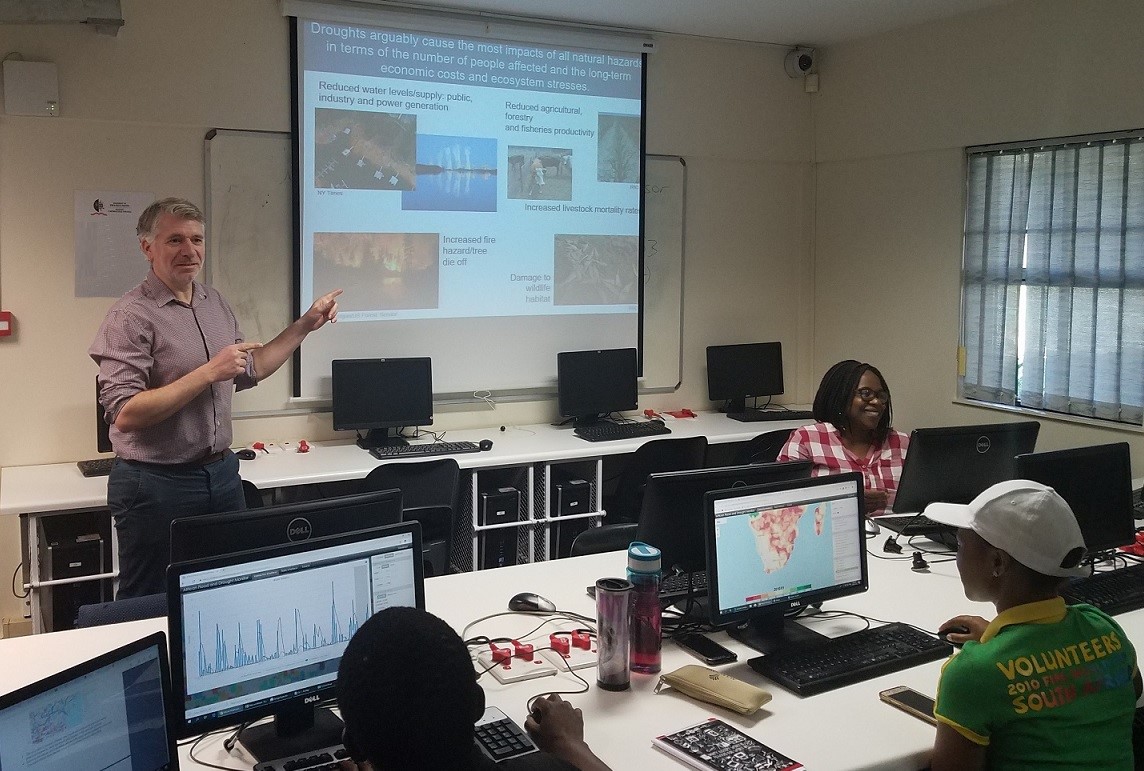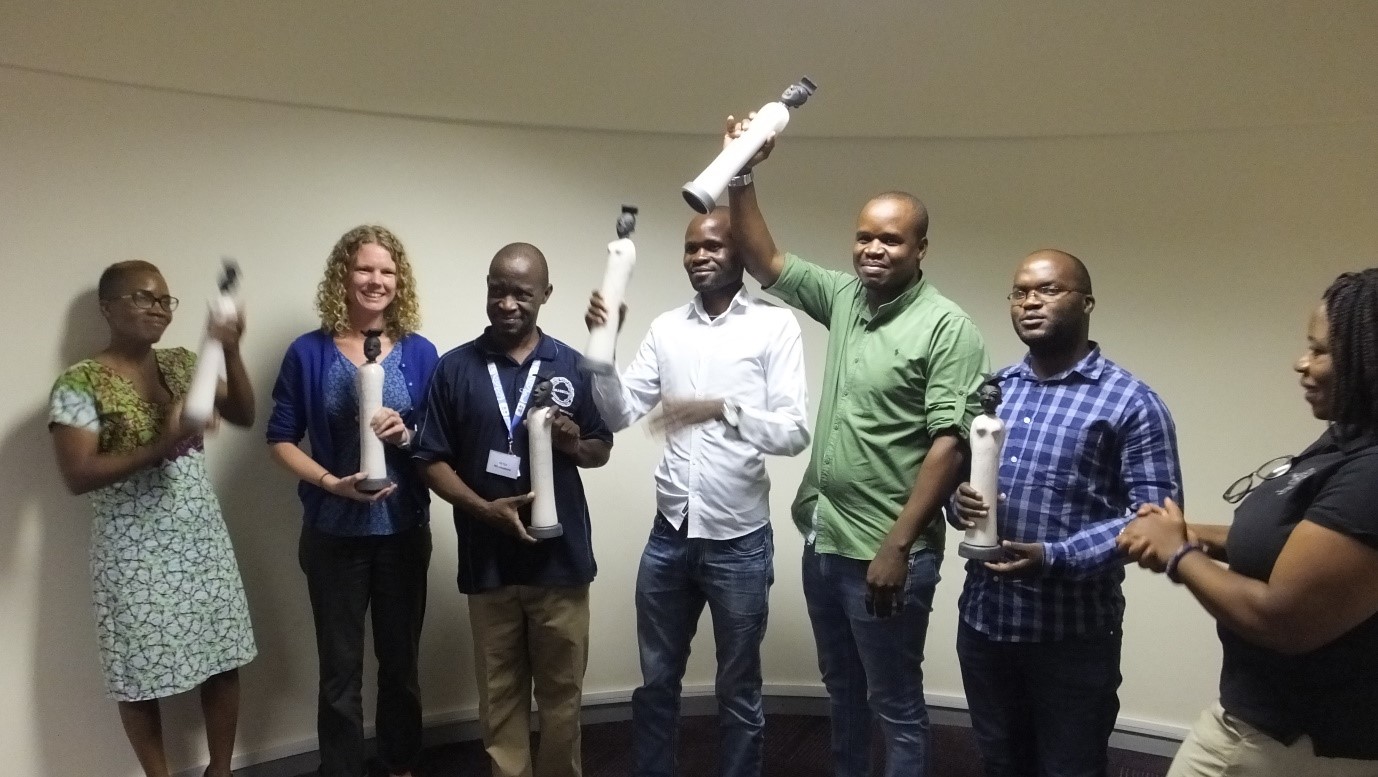
In January, colleagues from the Centre for Water, Communities and Resilience (CWCR) and the International Water Security Network (IWSN) at UWE Bristol organised and co-delivered an eight-day training course on ‘Remote Sensing for Water Resource Management’ in Pietermaritzburg, South Africa. The initiative was co-organised with UNESCO-IHP (International Hydrological Programme), the University of KwaZulu-Natal (UKZN) and the Institute of Natural Resources (INR). This follows two previous iterations of remote sensing training convened in Brazil and aimed at water resource management in the Caribbean and Latin America, forming part of a broader capacity development initiative called CliMWaR – ‘Enhancing climate services for improved water management’. One objective of CliMWaR is to train professionals, water resource managers and staff from government agencies and other organisations in current remote sensing data sources and their application in water resources management, through hands-on training directly relevant to their country and region of interest.

African Flood and Drought Monitor
Thirty delegates from 11 African countries (South Africa, Lesotho, Swaziland, Namibia, Botswana, Zimbabwe, Malawi, Zambia, Tanzania, Ethiopia, and Mauritius) and two from the Centre for Science and Environment in Delhi, India, participated in the training which was designed to serve as an introductory course for this broad and rapidly evolving subject area. The course was delivered by subject experts from UWE Bristol (Michael Horswell, Harry West and Nevil Quinn), as well as colleagues from University of Southampton, University of California Irvine, and VITO Belgium.
Over the course of the week, delegates were introduced to the basic principles of remote sensing, how to perform landcover and index based analysis as well as topographic analysis (e.g. slope, aspect and stream network derivation using elevation models). Participants also learnt how to access online data portals such as iRain, and the Food and Agriculture Organisation’s (FAO) Agriculture Stress Index System (ASIS) and Water Productivity Portal (WaPOR) platforms, as well as the African Flood & Drought Monitor. Full details and access to the course learning materials can be found here.

Delegates applied their new knowledge to a series of small case study catchments around the local area; supported by a local field trip lead by the INR, and culminating in competitive group presentations on the final day.
This course was the first in a series which aims to not only focus on the delivery of a week’s training to build capacity in the developing world for working with remote sensing technology, but also has ambitions in building a sustainable and thriving network of water resource management professionals to provide ongoing support.
This training event has been made possible through a grant the University of the West of England (UWE Bristol) received from the Global Challenges Research Fund (GCRF), and further support from the International Water Security Network (IWSN). The IWSN is funded by Lloyd’s Register Foundation, a charitable foundation helping to protect life and property by supporting engineering-related education, public engagement and the application of research. Travel for sponsored delegates was facilitated by UNESCO-IHP through funding received from the Flanders Fund-in-Trust (FUST). The training programme forms part of the CliMWaR project, also funded by FUST, and which has also funded the participation of some of the course presenters.
This training event represents the first of potentially three future iterations of the course, as GCRF funding via UWE Bristol has been secured for a further two years. The project team will be considering the benefits of another run of the course in the same location with the same partners, as well as the possibility of hosting it elsewhere in Africa.
We are also interested in developing synergies with other initiatives – if you would like to discuss any potential ideas please feel free to get in touch (Nevil.Quinn@uwe.ac.uk).
Participant testimonials
- “The course was a success in my view. All collaborators, UWE, INR, UKZN and all participants have been really amazing”.
- “Beyond the RS knowledge gained, the course has been an excellent opportunity to network with both lecturers and delegates, and I fully support the idea of creating a user-group where we can share outcomes, ideas, experience and pose questions”.
